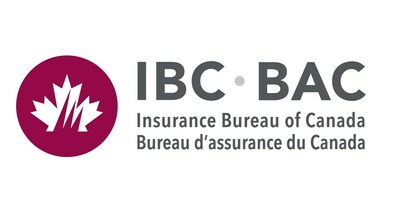Insurance Bureau of Canada deploys Community Assistance Mobile Pavilion
VANCOUVER, BC, Aug. 26, 2023 /CNW/ – With several evacuation orders having been lifted and many residents starting to return home in the regions impacted by recent wildfires, Insurance Bureau of Canada (IBC) is escalating its disaster response efforts and has deployed its on-site Community Assistance Mobile Pavilion (CAMP) in West Kelowna. Since August 20, IBC has operated its Virtual CAMP (V-CAMP) in response to the disaster, fielding dozens of calls with residents in the impacted communities.
CAMP provides support to insurance consumers who have experienced a severe weather disaster. It is staffed with trained insurance industry personnel who are there to help consumers navigate general home, business or vehicle insurance questions.
Through its deployment of CAMP, IBC joins many of its member insurance companies who are currently on the ground in the region to provide support to their customers.
In addition to deploying its on-site CAMP, IBC continues to operate its virtual CAMP to support residents in British Columbia and Northwest Territories. Any resident who is unable to visit IBC’s on-site CAMP location in West Kelowna can contact IBC’s Consumer Information Centre by phone at 1-844-2ask-IBC (1-844-227-5422) or by email at [email protected]. Staff remain on hand to answer your general questions about home, business, or vehicle insurance.
“Our hearts go out to the large amount of people who have been impacted by these wildfires and who have been forced to evacuate or whose property may have been damaged or destroyed,” said Aaron Sutherland, Vice-President, Western and Pacific, IBC. “The past few weeks have been extremely stressful for residents in the region. Thanks to the heroic efforts of first responders, the situation is beginning to stabilize in several areas and the focus is shifting to recovery. Canada’s insurers are ready to assist policyholders through the entire claims process.”
IBC CAMP staff will be available, starting on August 26 at Mount Boucherie Secondary School (2751 Cameron Road) in West Kelowna, to answer insurance-related questions for consumers and business owners affected by fire damage.
IBC is in close contact with provincial government and emergency management officials, as well as with municipal officials in the affected communities. This situation is changing rapidly. Updates from the BC Wildfire Service can be found at the BC Wildfires Map webpage.
Consumers are also encouraged to visit IBC’s Wildfires webpage for general information about insurance coverage during a wildfire and the various stages of the claims process.
- Standard home insurance policies typically cover damage caused by wildfire, including smoke damage.
- Home insurance also typically provides coverage for additional living expenses (such as temporary accommodation, fuel, and additional food costs) for individuals forced outside their home due to a mandatory evacuation order. This coverage typically lasts 14 to 30 days.
- Damage to vehicles from fire is usually covered if comprehensive or all perils coverage auto insurance was purchased. As this coverage is not mandatory, talk to your insurance representative to find out what your policy covers.
- Standard homeowner’s, condominium unit owner’s and tenant’s insurance policies typically cover the cost of alternative accommodations and living expenses for people who are prohibited from returning home due to a mandatory evacuation order or because their home is unlivable as a result of insured damage, in this case, fire or related damage.
- ALE covers additional living costs over and above your normal expenses. For example, if your temporary accommodations didn’t have laundry facilities and you have to use a laundromat, those laundromat expenses should be covered.
- ALE does not cover all of your living expenses while you are displaced; it covers your increased cost of living as a result of being displaced. ALE starts from the date of evacuation. There could be a limit to this coverage, so check with your insurance provider for details.
- Call your insurance representative. Most insurers have a 24-hour claims service. Be as detailed as possible when providing information.
- List all damaged or destroyed items. If possible, assemble proofs of purchase, photos, receipts and warranties. When safe to do so, take photos of damage incurred and keep damaged items, unless they pose a health hazard.
- Keep all receipts related to cleanup and living expenses if you’ve been displaced. Ask your insurance representative about what coverage for expenses you may be entitled to and for what period of time.
Insurance Bureau of Canada (IBC) is the national industry association representing Canada’s private home, auto and business insurers. Its member companies make up the vast majority of the property and casualty (P&C) insurance market in Canada. For more than 50 years, IBC has worked with governments across the country to help make affordable home, auto and business insurance available for all Canadians. IBC supports the vision of consumers and governments trusting, valuing and supporting the private P&C insurance industry. It champions key issues and helps educate consumers on how best to protect their homes, cars, businesses and properties.
For media releases and more information, visit IBC’s Media Centre at www.ibc.ca. Follow us on Twitter @InsuranceBureau and like us on Facebook. If you have a question about home, auto or business insurance, contact IBC’s Consumer Information Centre at 1-844-2ask-IBC.
SOURCE Insurance Bureau of Canada

Featured image: ©



